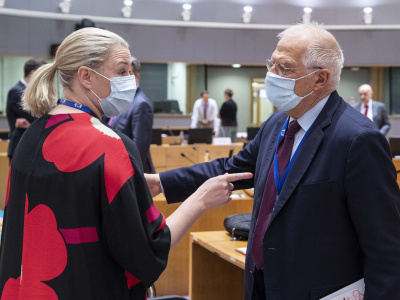
One Health and COVID-19: Global leadership, territorial investment and food systems
The One Health approach is particularly relevant to tackle threats like COVID-19 as it links the health of humans, animals, plants and their shared environments. Francesco Rampa argues the current health crisis is a good opportunity to place food systems at the centre of One Health actions and puts forward four proposals on how to do this.
Summary
The One Health approach is particularly relevant to tackle threats like COVID-19 because it links the health of humans, animals, plants and their shared environments. The current health emergency highlights the importance of these links, and offers an opportunity to place food systems at the centre of One Health actions.
This brief puts forward four proposals on how to do this: (1) a global arrangement for systematic coordination between food and other thematic institutions, (2) a territorial pact that combines public and private investment, (3) a one-year roadmap culminating with the 2021 UN Food System Summit, and (4) a combined leadership by three European presidencies of various international bodies, with the right tools at their disposal.
Healthier diets, a key outcome of more resilient and sustainable food systems, would support stronger immune systems and diminish the impact of crises like COVID-19. Sustainable food systems would also reduce income inequality, which is a strong multiplier of the negative effects of pandemics. A smaller footprint on the planet and better climate resilience as a result of more sustainable food systems would limit negative interactions between ecological, animal and human health.
Great reforms are often launched in times of serious crisis, like the design of the United Nations (UN) during the Second World War. The time therefore seems right to bring forward a new One Health approach – with food systems at its core.




